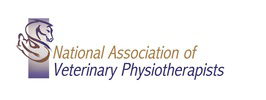A day in the life of a veterinary hospital
The daily activities of a busy equine hospital in the northwest of England in June 2021
A veterinary hospital is not too dissimilar to an NHS hospital. There are everyday routines that need to be carried out from planned routine surgery, ongoing assessment and monitoring of patients, clinic appointments to mucking out stables, feeding and moving horses, maintaining paddocks and pasture and managing the arrival and discharge of equine patients. The hospital must also be prepared for any emergency that might arrive.
The staff consist of a team of vets, visiting specialist vets, a team of nurses, yard staff and an administration team.
The day commences with a handover and debrief between night staff and the vet on call and day staff of nurses and vets. Patients will have been in overnight for a range of reasons including pre and post-surgery, awaiting reassessment, undergoing assessment, mares requiring scans and those who have foaled and their foals.
Diaries are shared and staff are allocated to specific roles depending on the priorities for the day. When surgery is planned the operating theatre is prepared by nursing staff whilst the operating and anaesthetist vets review the case history and conduct pre surgery checks. Because of the size of the animal the administration of anaesthetic must be carefully managed. The horse is taken into the padded knockdown box, the anaesthetic is delivered, and the horse is guided on to the floor in a safe way whilst going under. The horse is winched on to the operating table. Surgery commences around 10.30 and is highly monitored. After surgery they are winched into a padded recovery box, and video observed form a safe distance to monitor recovery. Sanitation of the operating theatre is completed immediately after.
Clinics take place throughout the day and involve a lameness clinic, as this is such a common issue for horses, and a dental clinic with a nurse assisting each vet in the clinics. Assessment in the lameness clinic may result in nerve blocks and further assessment to determine causal factors and scans and x-rays may need to be completed. Owners are consulted throughout to agree assessment and treatment processes due to the considerable cost involved.
Yard staff prepare boxes for clinic and surgery patients and ensure there is water and hay.A dedicated breeding vet team carry out a range of functions,. This could involve IVF processes and assessing and monitoring pregnant mares. The team can be called out to do home visits and to emergency pregnancy and foaling situations.
Emergency calls can be received at any time and can have an impact on surgery and clinics that have to be delayed or cancelled, and staff are reallocated to cover work.
Patients are checked at the end of the day; records are updated and a handover between day and night staff brings the day to an end. The day can be varied and sometimes unpredictable however the expertise of staff and cooperative teamwork and their dedication to the welfare of their equine patients ensure that the horses receive the best evidence based treatment that will aid their recovery.


